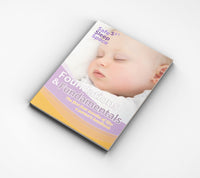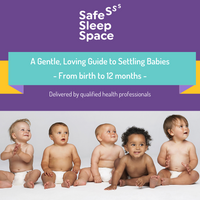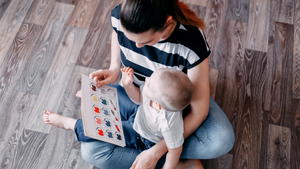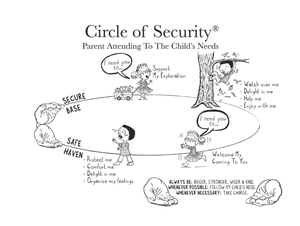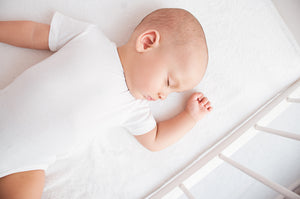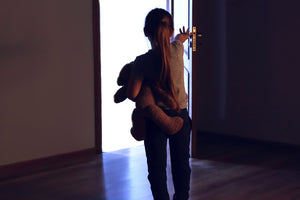Looking after the wellbeing of dads

Mothers deserve lots of attention during pregnancy, labour and birth and into the early days of parenting. And fathers justifiably, are generally included in all the joy and excitement. But once the presents have been unwrapped and life has settled into a new type of normal, the reality of caring for a small human can really set in for both mum and dad.
At some point in the early months of their baby’s life, most dads come to realise that life will never be the same again.
In the last few years there’s been a huge increase in the amount of peri-natal support for new parents. Now, more than ever before, we understand the importance of sound mental health and well-being. But fathers can still miss out on having their needs met and struggle to cope with the huge changes which have occurred in their life.
Depression and anxiety are not restricted to mothers and are a reality for dads as well. Depression affects as many as 1 in 10 fathers between their partner’s first trimester and in their baby’s first year. Anxiety affects around 1 in 6 fathers during the pregnancy and around 1in 5 in the postnatal period. Conditions which include anxiety are at least as common. Some fathers develop depression during their partner’s pregnancy, which can become worse after the baby is born.
Risk Factors for Depression and Anxiety in Fathers
- A previous history of mental health issues, including anxiety and depression.
- A partner’s complicated pregnancy, labour and/or birth.
- When a baby is premature or unwell.
- Disappointment about the baby’s birth, gender or having a health condition.
- Financial stress.
- Work-related stress.
- Needing to be the only source of practical and emotional support.
- Drug or alcohol misuse.
- Unplanned pregnancy.
- Unresolved issues from their own childhood.
I Didn’t Expect That!
Many fathers report they find the whole process of labour and childbirth very confronting. Although most dads have done some research beforehand, the reality of the event can come as quite a shock.
Some fathers feel guilty about what their partner needs to go through during labour and childbirth and report feeling guilty. Others report they felt numb and frightened by the event.
It’s not uncommon for fathers to focus on the equipment in the labour ward or theatre, especially if they have an electronic or machinery mindset. Some will adopt the attitude of ‘leaving it all to the experts’ and become very quiet and almost shut down through the process. This can be challenging for the labouring mother who may interpret her partner’s quietness as being unsupportive.
Some fathers say they actually feel emotionally traumatised after witnessing their baby being born.
Whatever your experience, it’s neither right nor wrong. Every father is unique and will have his own individual responses to his baby’s birth.
Symptoms of Anxiety and Depression
Symptoms can vary significantly, however, these are some of the most common
- A lack of enjoyment in everyday life.
- Just feeling flat or nothing much at all.
- Loss of libido.
- Appetite changes and weight loss.
- Difficulty sleeping, waking early and being unable to go back to sleep.
- An overwhelming sense of doom and foreboding.
- Not being able to bond with the baby.
- Feeling numb, disconnected and somehow removed from everyday life.
- Disordered thoughts, confusion and forgetfulness.
- Crying and feeling sad.
- Just not wanting to spend time with anyone, including the partner and baby.
- Overwhelming tiredness, feeling exhausted and wrung out.
Ten Things you Can do if You’re Feeling Depressed or Anxious
- Go easy on yourself. No one can be a perfect partner and parent. Aim for mediocre at most things, just for a little while.
- Conserve your energy for what’s important. Prioritise the people in the household first and then the things you need to do.
- Go for a walk everyday or exercise. Evidence supports the positive benefits of physical movement on anxiety and depression.
- Don’t isolate yourself. Try to connect with other people, even if it’s only for short periods at a time.
- Take some time off work if you can. Speak with your line manager about your family leave entitlements.
- Eat oily fish a few times each week and concentrate on eating a healthy diet.
- Cut back on alcohol and cigarettes. If you’re using drugs or substances, get help quitting.
- Sleep when you can and rest when you’re able.
- Plan for some quality time with your partner. This doesn’t need to be a big occasion, just be thoughtful about what you both need.
- Reach out for help. This is a sign of strength, never weakness or being unable to cope.
Where to Get Help
- Start with your GP. Make a longer appointment so you can really take your time to talk about how you’re feeling.
- Suggest to your GP that you may qualify for a mental health plan and referral to a psychologist or psychiatrist who specialises in post-natal support.
- Speak with your partner about how your feeling.
- Find a close friend who’s a dad and has experienced the same thing.
- Check Beyond Blue for some great information about mental health and fathering.
Remember, you are not alone. There is always help available.
Help with looking after your baby
The NourishBaby - Guide to Babies - is an online program that you can view in your own time. The Guide to Babies helps you to understand and care for your baby and covers key milestones, sleep and settling advice and baby development. There is a section on real parents sharing their experience of adjusting to parenthood.
Many parents have reduced sleep when a new baby arrives. The Safe Sleep Space website has a variety of resources and supports to provide tips and advice on how to assist your baby with sleep. You can also book a phone consultation to speak with a Sleep Consultant.
Other blog posts you will find helpful:
When is it time to get help for my child's sleeping?
Why is infant mental health so important when it comes to sleep?
Amber beads. Why they're really not a good idea.
Why is my baby noisy when they sleep?
- Tags: dads fathers mental health parenting
